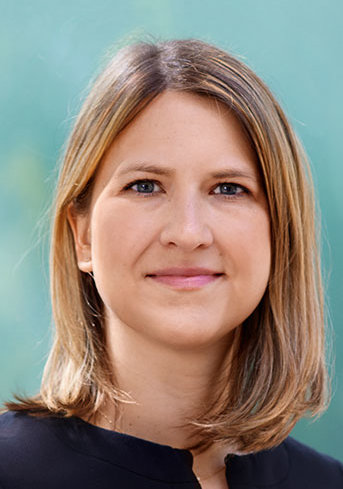Text Sarah Bäumchen ––– Photography
C limate change is one of the most pressing problems for Germany, Europe and the rest of the world, and combating increasing global warming is one of the most important tasks for our society. We are of the firm belief that we must face up to this challenge. The use of innovative technologies, especially from the electro and digital industry, is the vital key to protecting our climate while also safeguarding our prosperity.
If this transformation is to succeed, however, the industry must continue to rely on a specific category of substances with outstanding properties that make them indispensable for our sector’s high-tech products. We are talking about per- and polyfluoroalkyl substances – PFAS for short. Amongst other things, these substances are used in wind turbines, heat pumps and energy storage units, but also in electric drives, enclosures and semiconductors as well as many other products and the associated manufacturing processes. They therefore play an essential role in the energy transition, digitalisation and electrification. The blanket ban on PFAS proposed by the EU at the beginning of last year would thus have dire consequences and cannot be the right strategy when it comes to dealing with chemicals responsibly.
It is true that PFAS can pose risks to humans and the environment. We therefore need a risk-based approach that regulates their use, while also differentiating between the various PFAS groups and their respective uses. A blanket ban on the entire PFAS category, which comprises over 10,000 individual substances, cannot be the solution.
It goes without saying that industry must do its part and handle this substance category responsibly. The electro and digital industry in particular normally only uses PFAS in internal, encapsulated applications or in closed systems that are subject to professional disposal and recycling at the end of their life cycle. Furthermore, this industry is endeavouring to replace PFAS with other substances in risky applications wherever possible. However, it is also true to say that, in the case of many applications, technologically and ecologically appropriate replacement substances for PFAS will not become available in the foreseeable future.
Be that as it may, the EU now apparently wants to adopt a sledgehammer approach to the regulation of PFAS. The consequences would be far-reaching and would be bad for climate protection. It would suddenly no longer be possible to use, manufacture or refine the aforementioned products and countless others. The EU would thus be jeopardising not only the achievement of its climate targets, but also Eu-rope’s status as an industrial location, and both the competitiveness and innovative strength of our companies. On top of that, a total ban on PFAS in the EU would obviously not rid the world of them. They would still be used in many other regions around the globe.
All this places a heavy burden on companies, fuels investment uncertainty and hampers plans relating to measures such as expanding capacity. ZVEI, the German Electro and Digital Industry Association, is therefore joining other industry partners in opposing the proposed ban on PFAS. We are asking for PFAS to be differentiated and treated according to the risk they pose rather than being subject to a blanket ban. It must remain possible to process certain PFAS for as long as no alternatives to them are available.
After all, without PFAS, the energy transition threatens to grind to a complete halt. No-one can want that. Of course, any transformation phase involves risks, but so does the shift to a climate-neutral industrial society – a shift that politicians are calling for and that we support. It is therefore important to manage this process effectively. Moreover, the time has come to initiate a discourse about which risks we as a society are prepared to accept. We firmly believe that it will be impossible to achieve a risk-free world, so the important thing is to deal with potential risks responsibly. Our electro and digital industry is deeply committed to this.
